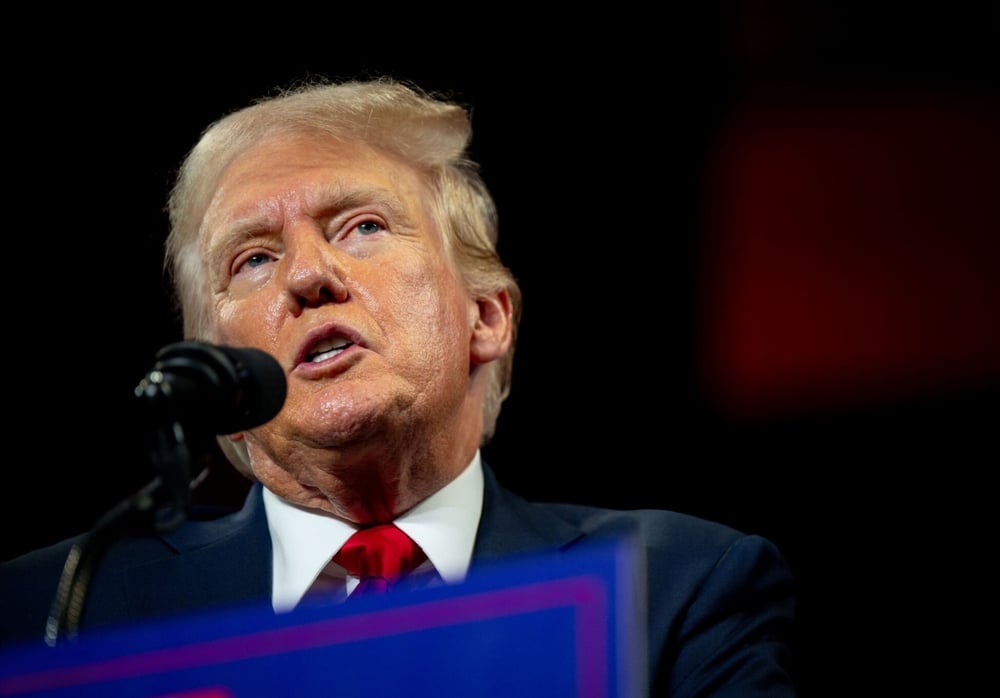Internal tensions between the president and the parliament sparked the political crisis in South Korea that led to the declaration and swift lifting of martial law, but the effects will undoubtedly extend beyond the borders.
For many, President Yoon Suk Yeol's irrational and incomprehensible move, despite the fact that it only lasted one night, has long-term destabilised South Korean democracy and tarnished the country's international reputation.
By declaring martial law to deal with the opposition that controls parliament, President Yoon has reached for an instrument that proved to be ill-suited to the level of democracy that South Korea has achieved in the 21st century.
President Yoon's move is not unprecedented. This marks the tenth declaration of martial law in South Korea since its establishment in 1948, with 43 years having passed since the last one.
This means that entire generations of South Koreans do not remember such a drastic democratic decline, which is accompanied by elements of the military administration. Whatever his motives, President Yoon has underestimated the democratic evolution of his nation, which rejects coups and martial law as a form of governing, despite the fact that they were common in the not-so-distant past.
All the democratic institutions in South Korea successfully passed the stress test, as they rapidly rectified the defect and restored order within the framework of democracy in a matter of hours.
Long-term consequences
However, repairing the internal, political, and economic consequences will take a significant amount of time, particularly when it comes to South Korea's role in regional and global frameworks.
The parliamentary majority of the Democratic Party launched the impeachment procedure of President Yoon on Wednesday, which means that the vote of confidence is most likely on Friday, Saturday at the latest.
The largest trade union organisation, the Korean Confederation of Trade Unions, supported the political initiative in the parliament and went on strike until President Yoon's departure.
If the impeachment is successful, President Yoon will leave office halfway through his term
"We can no longer allow democracy to collapse. The lives and safety of the people must be protected," said Kim Yong-jin, one of the leaders of the Democratic Party.
If the impeachment is successful, President Yoon will leave office halfway through his term, which extends until 2027. This means that South Koreans will immediately begin the campaign to elect a new president.
However, impeaching the president is not simple and requires two-thirds of parliament votes and two-thirds (six out of nine) Constitutional Court rulings, which can take up to six months.
If there are not enough votes at both decision-making levels, President Yoon will remain in office until the end of his five-year term.
The weakening of the Pacific coalition
All of this suggests that South Korea has entered a protracted political crisis—one that will unavoidably be characterised by high tensions and a shift in attention from the economy and regional security to the internal political front.
The political crisis caused by President Yoon has already weakened South Korea's ability to form alliances, a vital part of the security framework on the Korean Peninsula and in the Pacific.
"We don't have NATO in the Pacific, but what we have is a series of vital bilateral, nation-to-nation alliances... and each of them is critical," said retired US Admiral James Stavridis, worried about events in South Korea.
The destabilisation of democracy in South Korea comes as Pyongyang sharply escalates the crisis in Ukraine
The destabilisation of democracy in South Korea comes as Pyongyang sharply escalates the crisis in Ukraine by sending thousands of its soldiers to fight on Russia's side.
While this adds a new dimension to the Russian invasion, with Moscow tying itself even more tightly to the aid of its renegade allies, such as Iran and North Korea, the implications are equally dangerous for security prospects on the Korean Peninsula and the Pacific.
"In return for troops and weapons, Russia is providing North Korea with support for its missile and nuclear programmes. These developments could destabilise the Korean Peninsula and even threaten the United States," said Mark Rutte, the new chief of the Alliance, in front of NATO foreign ministers on Wednesday.
Trump and the future of the Pacific alliance
The last thing the allies in the Pacific needed was a dramatic crisis like the one in South Korea this week. Additionally, the crisis arose during a delicate period of transition between two presidential administrations in Washington, raising questions about the extent of potential corrections (if any) in US policies towards the Pacific, China, and North Korea.
 "For all Trump's rhetorical contempt for alliances, however, Washington, Seoul, and Tokyo face a growing number of common threats" - Edward Howell
"For all Trump's rhetorical contempt for alliances, however, Washington, Seoul, and Tokyo face a growing number of common threats" - Edward Howell
Regardless of the fact that Donald Trump has announced that he will tighten the security criteria of the future alliance with the Pacific partners, the tripartite partnership that outgoing President Joe Biden strengthened with the agreement at Camp David last year will remain the backbone of common security interests in the region.
"For all Trump's rhetorical contempt for alliances, however, Washington, Seoul, and Tokyo face a growing number of common threats, whether from an increasingly aggressive North Korea and China or the heightened partnership between North Korea and Russia. Thus, the likelihood of any dramatic deterioration in relations between Washington and Seoul...looks to be small," wrote Dr Edward Howell from Chatham House's Asia-Pacific Programme earlier.
However, the crisis he caused makes South Korean President Yoon an unreliable partner within the US-led alliance in dealing with challenges in the Pacific region.
If he survives the impeachment process already underway, President Yoon will be a burden on the alliance's ability to counter the influence of China and North Korea, as he will carry with him the burden of destabilising one of the key members of the allied bloc.